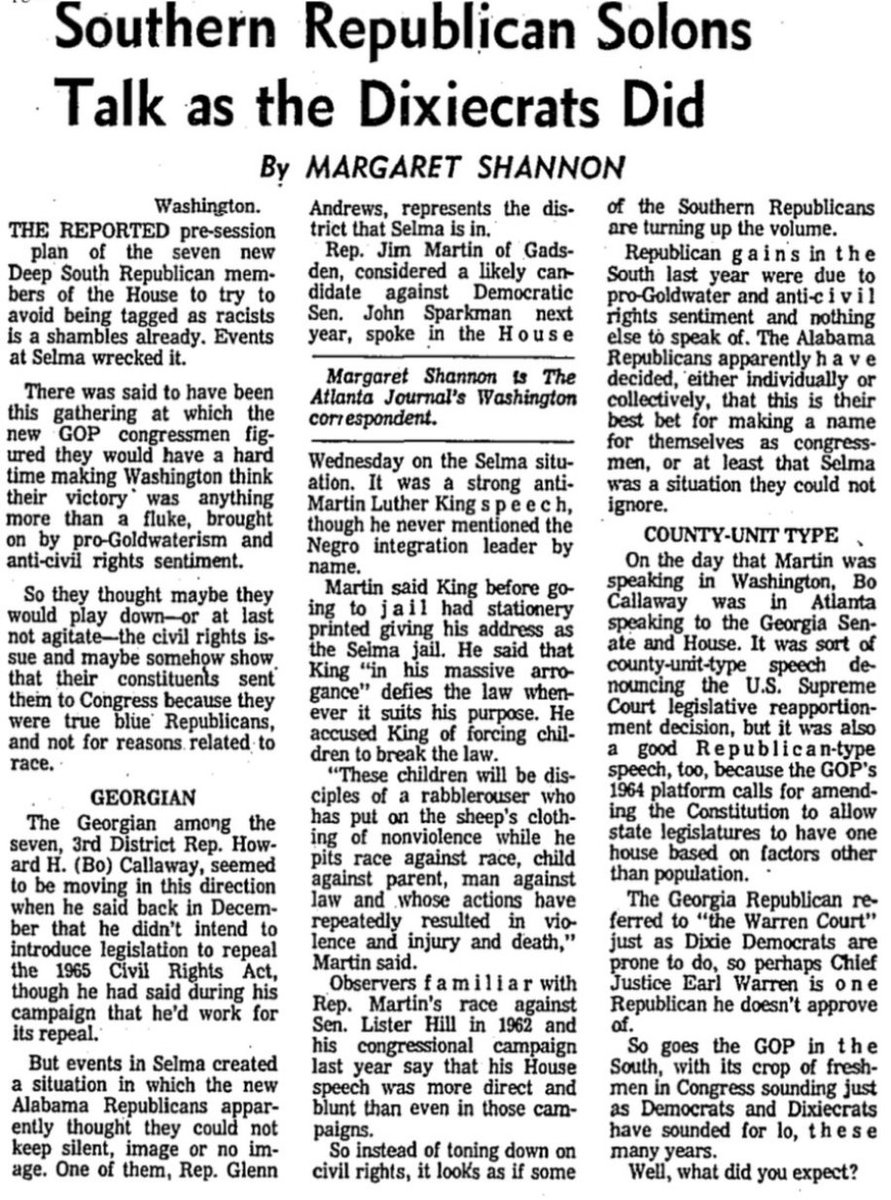But if you look at things in regional terms, the important difference is clear:

But as this thread shows, conservatives back then *despised* those liberal and moderate Republicans:
Instead, as that 0-11 vote on the CRA showed, they were quite like the conservative southern Democrats who had opposed it.

Two signed the Southern Manifesto. Four petitioned Eisenhower to pull federal troops out of Little Rock.
He spoke out against civil rights, joined with S. Dems to filibuster, and voted against the Civil Rights Act & Voting Rights Act.

Pundits, like Joe Alsop here, increasingly called it "the Southern Strategy."


But when Barry Goldwater -- who voted against it -- took control of the party, the liberal/moderate wing found itself marginalized.

Unlike previous Republicans who cracked the Solid South, Goldwater won by appealing not to moderate whites and African Americans, but to white conservatives.

A new generation of House Republicans won election in 1964, indicative of what was to come:
A staunch segregationist, Callaway promised to repeal the Civil Rights Act & then voted against the Voting Rights Act.

During the 1965 Selma protests, he denounced MLK Jr. as a "rabble-rouser who has put on the sheep's clothing of non-violence while he pits race against race, man against law."

He insisted, from the floor of the House, that the civil rights marchers were actually a radical group engaged in wild orgies.

But when the Voting Rights Act of 1965 came up, all five Alabama Republicans voted the same way as the state's Democrats: against it.

He too voted against the Voting Rights Act, and in 1966 claimed civil rights workers were worse than the Klan.

Segregationist Democrat Rep. Albert Watson publicly backed Goldwater in 1964. In retaliation, House Dems stripped him of his seniority.
After he won, he called for investigations into "subversive" civil rights groups.

Here's an ad from George H.W. Bush's unsuccessful 1964 campaign against liberal Democratic Sen. Ralph Yarborough of Texas.



On racial issues, the white South stayed constant, even as it changed its party choices over the coming decades.
But it's also worth watching how Southern Republicans made their way in.










